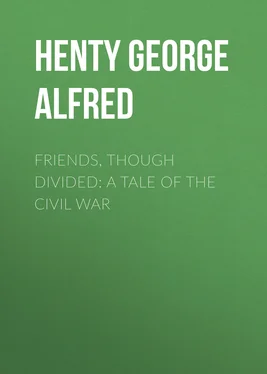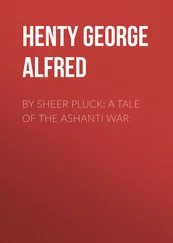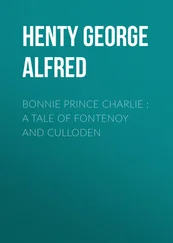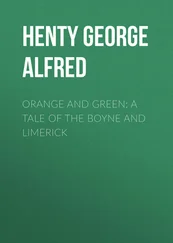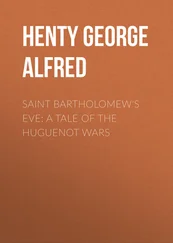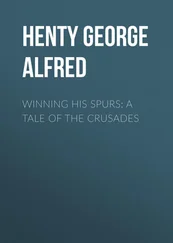George Henty - Friends, though divided - A Tale of the Civil War
Здесь есть возможность читать онлайн «George Henty - Friends, though divided - A Tale of the Civil War» — ознакомительный отрывок электронной книги совершенно бесплатно, а после прочтения отрывка купить полную версию. В некоторых случаях можно слушать аудио, скачать через торрент в формате fb2 и присутствует краткое содержание. Жанр: foreign_children, foreign_antique, foreign_prose, prose_military, на английском языке. Описание произведения, (предисловие) а так же отзывы посетителей доступны на портале библиотеки ЛибКат.
- Название:Friends, though divided: A Tale of the Civil War
- Автор:
- Жанр:
- Год:неизвестен
- ISBN:нет данных
- Рейтинг книги:3 / 5. Голосов: 1
-
Избранное:Добавить в избранное
- Отзывы:
-
Ваша оценка:
- 60
- 1
- 2
- 3
- 4
- 5
Friends, though divided: A Tale of the Civil War: краткое содержание, описание и аннотация
Предлагаем к чтению аннотацию, описание, краткое содержание или предисловие (зависит от того, что написал сам автор книги «Friends, though divided: A Tale of the Civil War»). Если вы не нашли необходимую информацию о книге — напишите в комментариях, мы постараемся отыскать её.
Friends, though divided: A Tale of the Civil War — читать онлайн ознакомительный отрывок
Ниже представлен текст книги, разбитый по страницам. Система сохранения места последней прочитанной страницы, позволяет с удобством читать онлайн бесплатно книгу «Friends, though divided: A Tale of the Civil War», без необходимости каждый раз заново искать на чём Вы остановились. Поставьте закладку, и сможете в любой момент перейти на страницу, на которой закончили чтение.
Интервал:
Закладка:
In a week from the day of the appeal of Sir Henry two troops, each of a hundred men strong, drew up in front of Furness Hall. To the eye of a soldier accustomed to the armies of the Continent, with their bands trained by long and constant warfare, the aspect of this troop might not have appeared formidable. Each man was dressed according to his fancy. Almost all wore jack-boots coming nigh to the hip, iron breast and back pieces, and steel caps. Sir Henry Furness and four gentlemen, his friends, who had seen service in the Low Countries, and had now gladly joined his band, took their places, Sir Henry himself at the head of the body, and two officers with each troop. They, too, were clad in high boots, with steel breast and back pieces, thick buff leather gloves, and the wide felt hats with feathers which were worn in peace time. During the war some of the Royalist officers wore iron caps as did their foes. But the majority, in a spirit of defiance and contempt of their enemies, wore the wide hat of the times, which, picturesque and graceful as it was, afforded but a poor defense for the head. Almost all wore their hair long and in ringlets, and across their shoulders were the white scarfs typical of their loyalty to the king. Harry bestrode a fine horse which his father had given him, and had received permission to ride for half the day's march by his side at the head of the troop. The trumpeter sounded the call, Sir Henry stood up in his stirrups, drew his sword and waved it over his head, and shouted "For God and King." Two hundred swords flashed in the air, and the answering shout came out deep and full. Then the swords were sheathed, the horses' heads turned, and with a jingle of sabers and accouterments the troop rode gayly out through the gates of the park.
Upon their way north they were joined by more than one band of Cavaliers marching in the same direction, and passed, too, several bodies of footmen, headed by men with closely-cropped heads, and somber figures, beside whom generally marched others whom their attire proclaimed to be Puritan preachers, on their way to join the army of Essex. The parties scowled at each other as they passed; but as yet no sword had been drawn on either side, and without adventure they arrived at Nottingham.
Having distributed his men among the houses of the town, Sir Henry Furness rode to the castle, where his majesty had arrived the day before. He had already the honor of the personal acquaintance of the king, for he had in one of the early parliaments sat for Oxford. Disgusted, however, with the spirit that prevailed among the opponents of the king, and also by the obstinacy and unconstitutional course pursued by his majesty, he had at the dissolution of Parliament retired to his estate, and when the next House was summoned, declined to stand again for his seat.
"Welcome, Sir Henry," his majesty said graciously to him, "you are among the many who withstood me somewhat in the early days of my reign, and perchance you were right to do so; but who have now, in my need, rallied round me, seeing whither the purpose of these traitorous subjects of mine leads them. You are the more welcome that you have, as I hear, brought two hundred horsemen with you, a number larger than any which has yet joined me. These," he said, pointing to two young noblemen near him, "are my nephews, Rupert and Maurice, who have come to join me."
Upon making inquiries, Sir Henry found that the prospects of the king were far from bright. So far, the Royalists had been sadly behindhand with their preparations. The king had arrived with scarce four hundred men. He had left his artillery behind at York for want of carriage, and his need in arms was even greater than in men, as the arsenals of the kingdom had all been seized by the Parliament. Essex lay at Northampton with ten thousand men, and had he at this time advanced, even the most sanguine of the Royalists saw that the struggle would be a hopeless one.
The next day, at the hour appointed, the royal standard was raised on the Castle of Nottingham, in the midst of a great storm of wind and rain, which before many hours had passed blew the royal standard to the ground—an omen which those superstitiously inclined deemed of evil augury indeed. The young noblemen and gentlemen, however, who had gathered at Northampton, were not of a kind to be daunted by omens and auguries, and finding that Essex did not advance and hearing news from all parts of the country that the loyal gentlemen were gathering their tenants fast, their hopes rose rapidly. There was, indeed, some discontent when it was known that, by the advice of his immediate councilors, King Charles had dispatched the Earl of Southampton with Sir John Collpeper and Sir William Uvedale to London, with orders to treat with the Commons. The Parliament, however, refused to enter into any negotiations whatever until the king lowered his standard and recalled the proclamation which he had issued. This, which would have been a token of absolute surrender to the Parliament, the king refused to do. He attempted a further negotiation; but this also failed.
The troops at Nottingham now amounted to eleven hundred men, of which three hundred were infantry raised by Sir John Digby, the sheriff of the county. The other eight hundred were horse. Upon the breaking off of negotiations, and the advance of Essex, the king, sensible that he was unable to resist the advance of Essex, who had now fifteen thousand men collected under him, fell back to Derby, and thence to Shrewsbury, being joined on his way by many nobles and gentlemen with their armed followers. At Wellington, a town a day's march from Shrewsbury, the king had his little army formed up, and made a solemn declaration before them in which he promised to maintain the Protestant religion, to observe the laws, and to uphold the just privileges and freedom of Parliament.
The Furness band were not present on that occasion, as they had been dispatched to Worcester with some other soldiers, the whole under the command of Prince Rupert, in order to watch the movements of Essex, who was advancing in that direction. While scouring the ground around the city, they came upon a body of Parliamentary cavalry, the advance of the army of Essex. The bands drew up at a little distance from each other, and then Prince Rupert gave the command to charge. With the cheer of "For God and the king!" the troop rushed upon the cavalry of the Parliament with such force and fury that they broke them utterly, and killing many, drove them in confusion from the field, but small loss to themselves.
This was the first action of the civil war, the first blood drawn by Englishmen from Englishmen since the troubles in the commencement of the reign of Mary.
CHAPTER III.
A BRAWL AT OXFORD
News in those days traveled but slowly, and England was full of conflicting rumors as to the doings of the two armies. Every one was unsettled. Bodies of men moving to join one or other of the parties kept the country in an uproar, and the Cavaliers, or rather the toughs of the towns calling themselves Cavaliers, brought much odium upon the royal cause by the ill-treatment of harmless citizens, and by raids on inoffensive country people. Later on this conduct was to be reversed and the Royalists were to suffer tenfold the outrages now put upon the Puritans. But there can be no doubt that the conduct of irresponsible ruffians at that time did much to turn the flood of public opinion in many places, where it would otherwise have remained neutral, against the crown.
To Harry the time passed but slowly. He spent his days in Abingdon hearing the latest news, and occasionally rode over to Oxford. This city was throughout the civil war the heart of the Royalist party, and its loss was one of the heaviest blows which befell the crown. Here Harry found none but favorable reports current. Enthusiasm was at its height. The university was even more loyal than the town, and bands of lads smashed the windows of those persons who were supposed to favor the Parliament. More than once Harry saw men pursued through the streets, pelted with stones and mud, and in some cases escaping barely with their lives. Upon one occasion, seeing a person in black garments and of respectable appearance so treated, the boy's indignation was aroused, for he himself, both from his conversations with his friend Herbert, and the talk with his father, was, although enthusiastically Royalist, yet inclined to view with respect those who held opposite opinions.
Читать дальшеИнтервал:
Закладка:
Похожие книги на «Friends, though divided: A Tale of the Civil War»
Представляем Вашему вниманию похожие книги на «Friends, though divided: A Tale of the Civil War» списком для выбора. Мы отобрали схожую по названию и смыслу литературу в надежде предоставить читателям больше вариантов отыскать новые, интересные, ещё непрочитанные произведения.
Обсуждение, отзывы о книге «Friends, though divided: A Tale of the Civil War» и просто собственные мнения читателей. Оставьте ваши комментарии, напишите, что Вы думаете о произведении, его смысле или главных героях. Укажите что конкретно понравилось, а что нет, и почему Вы так считаете.
